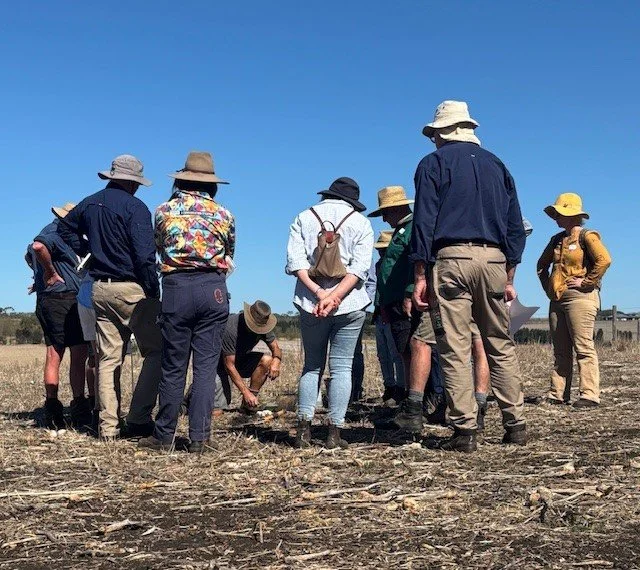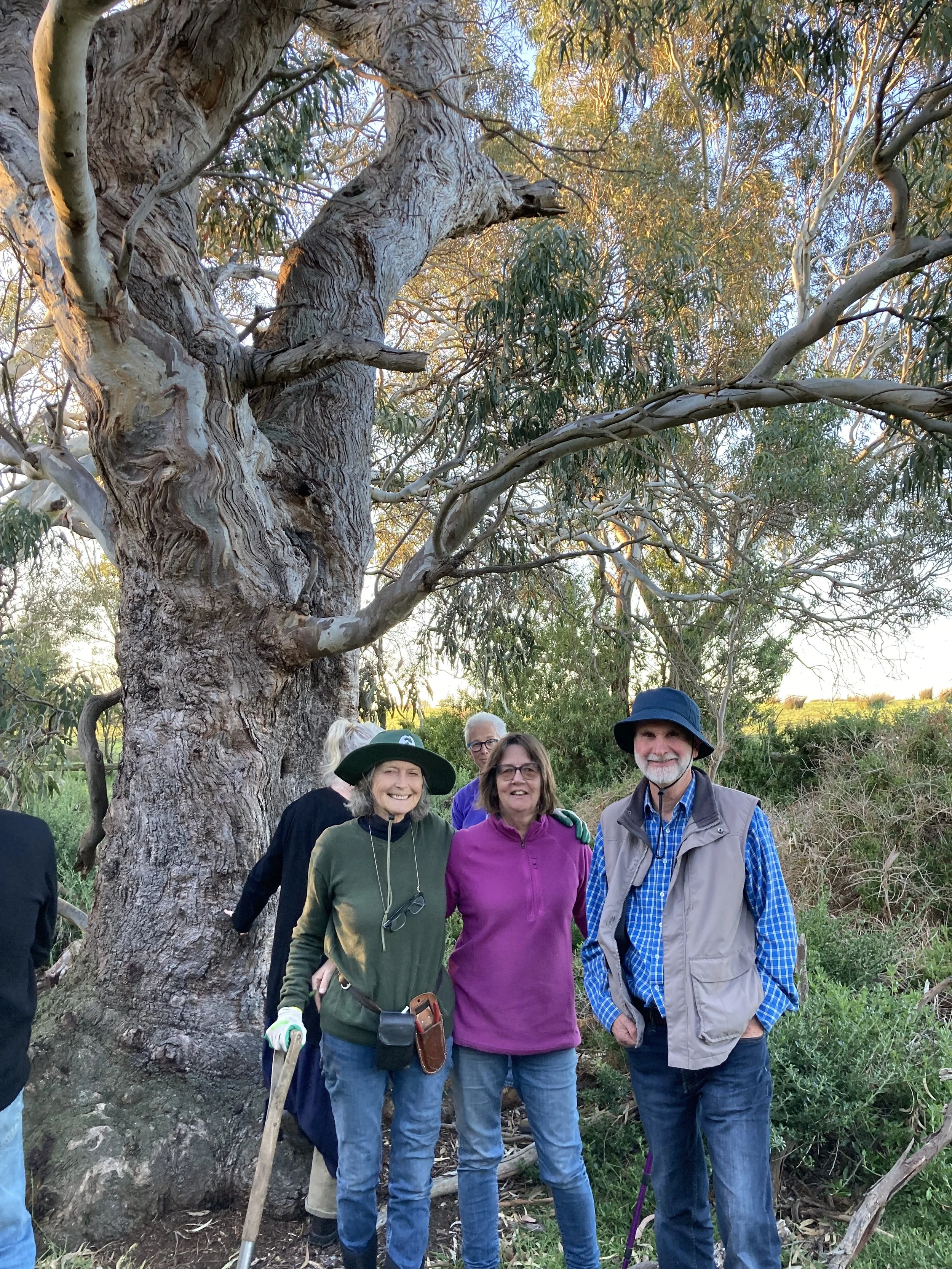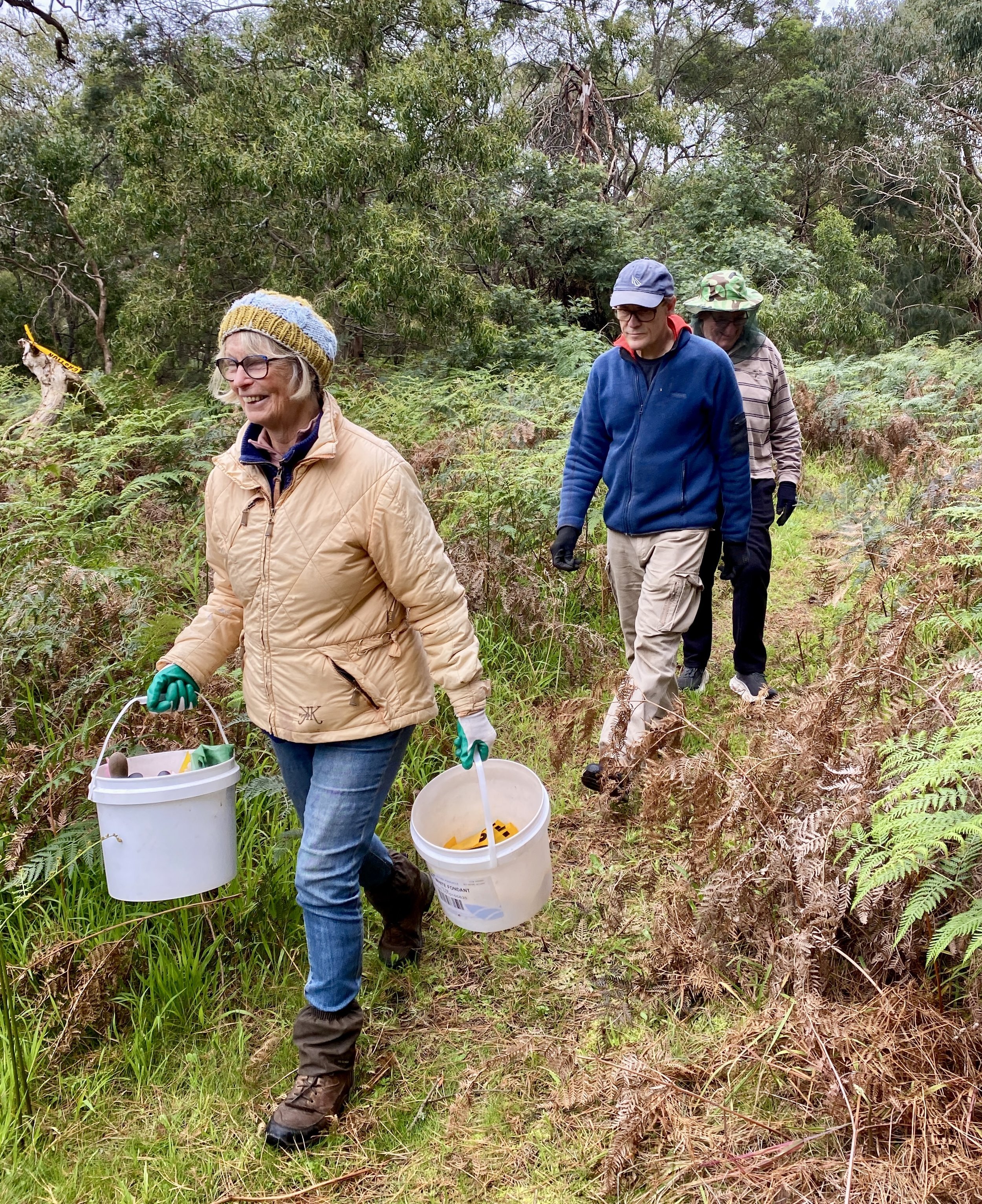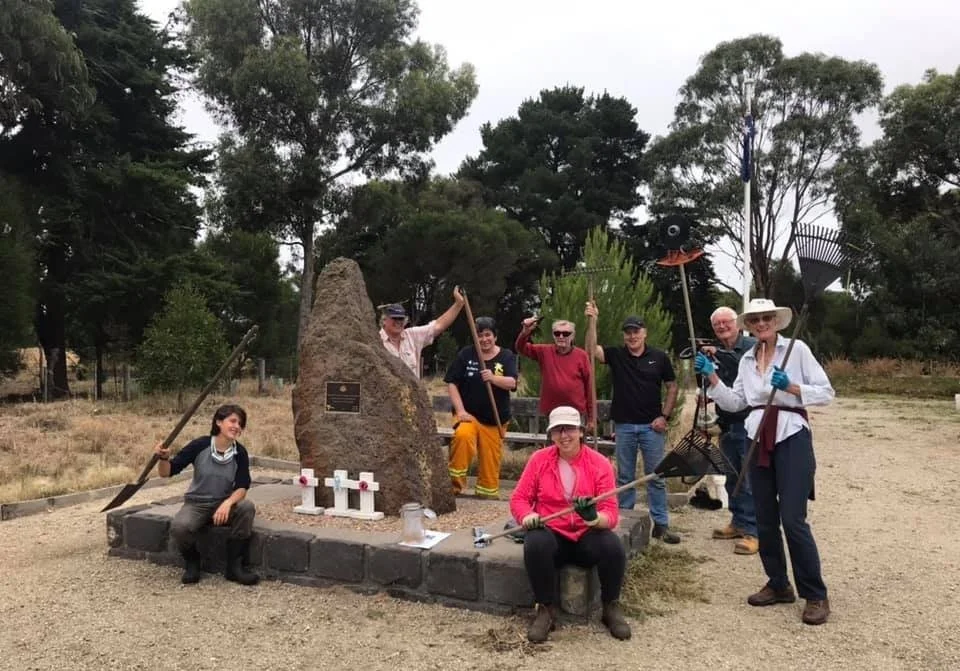
What’s On
Upcoming Events
Activities
Monthly Gatherings
On the second Wednesday of the month, we welcome our members and any other interested people to an educational and social gathering. Check our calendar for details.
We invite experts to facilitate sessions, run educational visits to properties, and draw from local knowledge and experience. Together we build our knowledge and develop our capacity to improve biodiversity, sustainable agriculture and pest control, through a range of interesting topics. All are welcome.
Rabbit Action Group
The Rabbit Action Group (RAG) supports property owners to eradicate rabbits from their land. They provide best practice advice, introduce practical tools and resources, and encourage community collaboration. They meet once a month on a Wednesday morning to plan activities.
RAG works closely with and supports the Bellarine Rabbit Sweep to engage the community in Peninsula-wide rabbit action through field days, workshops, and a comprehensive catalogue of rabbit control information. A part-time facilitator is employed through funding from the State Government’s Partnership Against Pests to support the Rabbit Sweep.
If you would like advice about rabbits on your property, or would like to be involved with the Bellarine Rabbit Sweep, we would love to hear from you.
Friends of the Basin & Belchers Reserves
Friends of the Basin Reserve Friends of the Basin / Belchers Reserve are a team of volunteers who meet at the Bellarine Landcare Nursery on the last Tuesday of each month for a two hour working bee. The Friends support the City of Greater Geelong Natural Reserves Team restoring the much-loved natural attraction, Basin Reserve along with Belchers Reserve, next to the Nursery in Drysdale. We work with the Nursery and Council to reintroduce indigenous plants, identify endemic species, pinpoint active rabbit burrows (for elimination), and many other citizen science activities.
Mannerim Memorial Indigenous Garden
The Mannerim Memorial Indigenous Garden (MMIG), a place for peaceful reflection, was officially opened on Remembrance Day 2017 on the site of the original 1923 Memorial Hall.
The garden, a culmination of a massive community effort, was specifically designed to utilise Indigenous plants, while symbolically honouring the soldiers. Bollards within the garden use QR codes to link to further details of the soldiers and their stories of WW1.
A ‘Friends of’ group meets on the third Sunday of the month, 10am - 11:30am, to care for the garden. They run a Remembrance Day Service each November. All are welcome to join their working bees and Remembrance Day Service.
Projects
If you are interested in participating in these projects, contact BLG facilitator@bellarinelandcare.org.au
Landholder Knowledge Clusters 2025
Building private landholder knowledge and connections for wholistic land stewardship on the Bellarine.’
This Victorian Landcare grant will be used to identify areas of interest for participating landholders; help create Natural Resource Management plans; share current best practice; and create landholder groups. One cluster of landholders will focus on sustainable farming practices and another cluster will focus on the protection of high values conservation areas which adjoin their properties. We will assist with Natural Resource Management plans and will hold four Seasonal Gatherings with guest experts, to generate localised knowledge of issues and find effective solutions. After the project is completed, we will support landholders to continue sharing knowledge and working together.
Firewise Garden at the Mannerim CFA
Bellarine Landcare Group and Mannerim CFA have joined forces to create a garden of Firewise Indigenous plants. This area, in the grounds of Mannerim Fire Station, aims to showcase local, native plants that have reduced flammability and fire-resistant properties. All of the plants in this garden were grown in the Bellarine Secondary College and Bellarine Landcare Indigenous Nursery.
While the seedlings were being nurtured at the Nursery, the ground was prepared with extensive mulching. In March 2024 the first phase of planting began. Plans for the garden include signage to help visitors access plant lists and identify local native plants that have Firewise properties.
See the detailed list of local fire-wise plants here, or guides on reducing bushfire risks at the CFA website
Swan Bay Catchment Grants Program
This program aims to reinvigorate, link and improve a range of habitats across the Bellarine, including saltmarsh, coastal and grassy woodland, waterways and wetlands. BLG partners with City of Greater Geelong to assist landowners within the Swan Bay Catchment to address threats to biodiversity by protecting and enhancing native vegetation and waterways on their properties.
Participating landowners receive a Conservation Management Plan (CMP) for their property and can apply for funding to undertake works proposed in the CMP. Works funded include weed control, revegetation, fencing and assistance towards establishing conservation covenants.
Art Exhibitions Inspired By Nature
Art is a powerful way to connect people to the beauty of nature. For the past three years, we’ve partnered with Artisans of Australia in Drysdale and Bellarine Catchment Network to highlight the rich and diverse landscapes of the Bellarine Peninsula through exhibitions featuring the work of local artists. The themes of previous exhibitions have been: Ramsar Wetlands (2024); Habitats (2023); and Flora of the Bellarine (2022). Our 2025 exhibition “Woodlands of the Bellarine” is currently being planned. It will run from mid-July to mid-August. Local artists are encouraged to submit an expression of interest.
Farm Dams Enhancement 2022 - 23
Vegetation around farm dams play an important role in filtering water, as well as providing habitat for native wildlife such as birds, frogs and long-necked turtles, and reducing green-house gas emissions.
In 2021-3, supported by a Victorian Landcare Grant, Bellarine Landcare Group partnered with eight local landholders to fence off and revegetate around farm dams, planting 6000 local native seedlings around 8 dams.
‘Project Long-Necked Turtle’ aimed to demonstrate the ‘how?’ and ‘why?’ of farm dam plantings and was backed up by research conducted by Blue Carbon Lab which found unvegetated dams are hot spots for greenhouse gas emissions, producing an equivalent to 385,000 cars each day in Victoria. Livestock effluent, erosion, and fertilizer input create ideal conditions for microbial greenhouse gas production.
Read more from Blue Carbon here.













